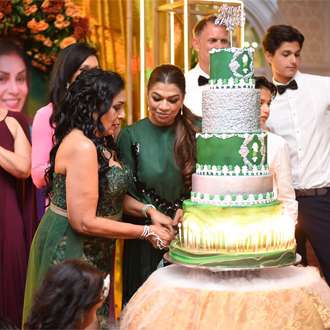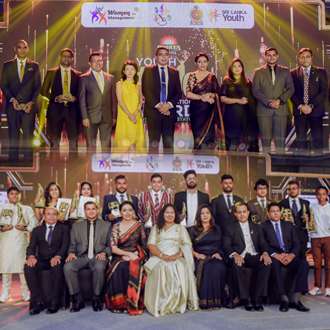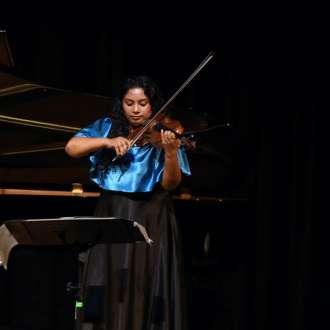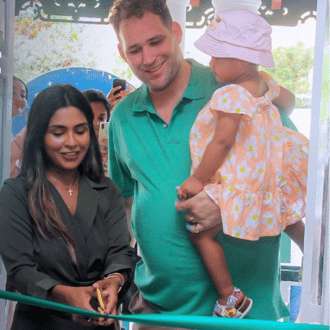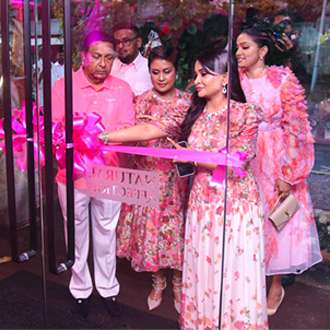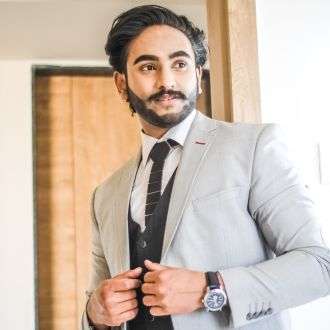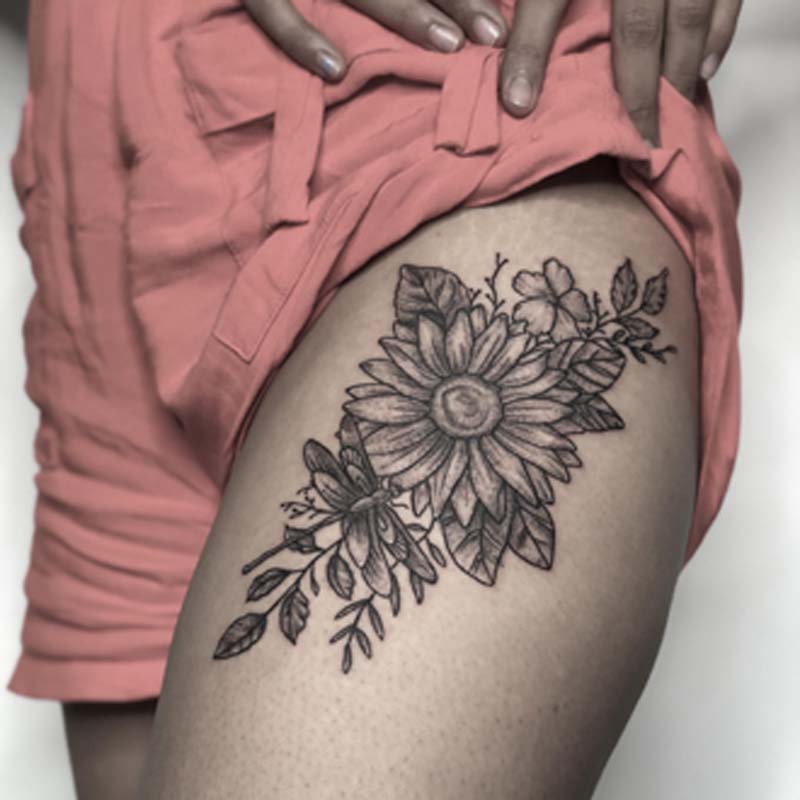
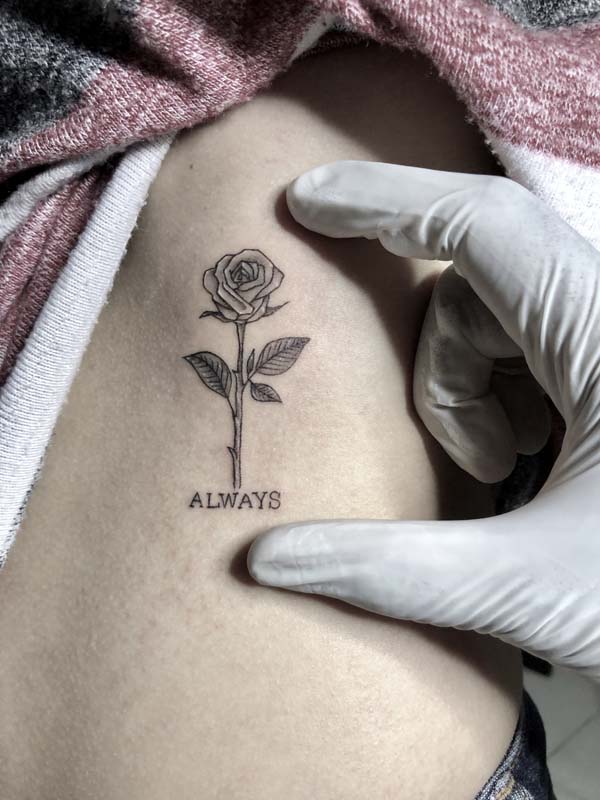
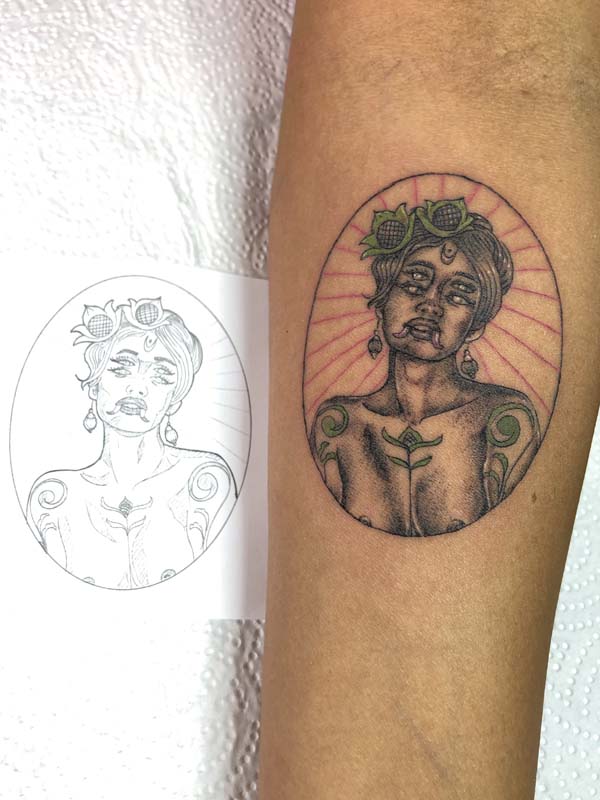
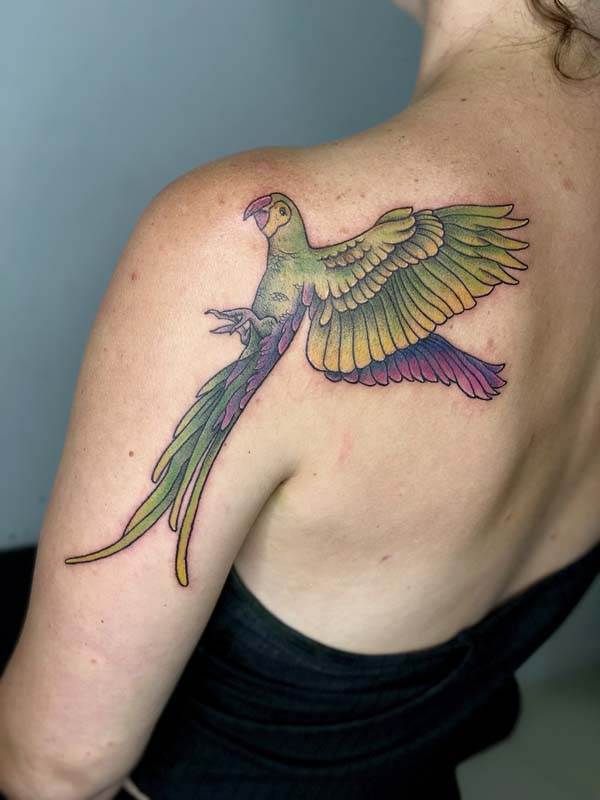
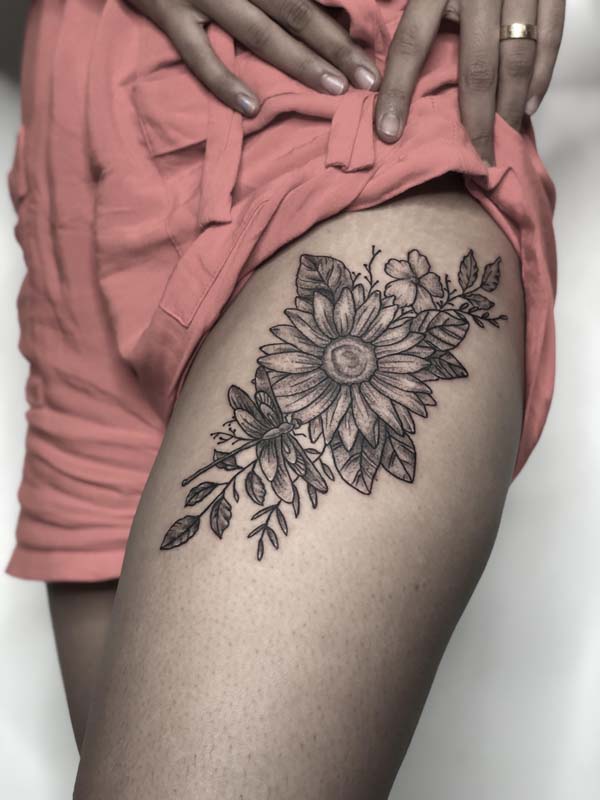
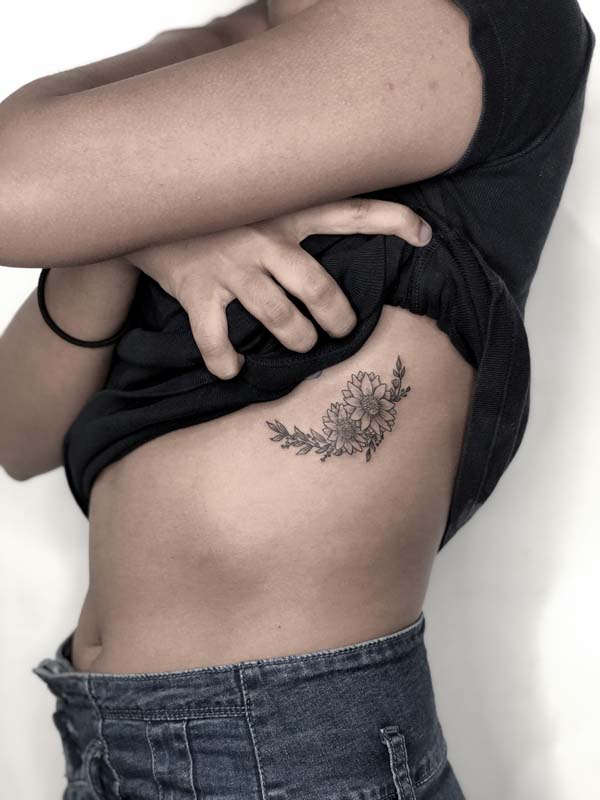
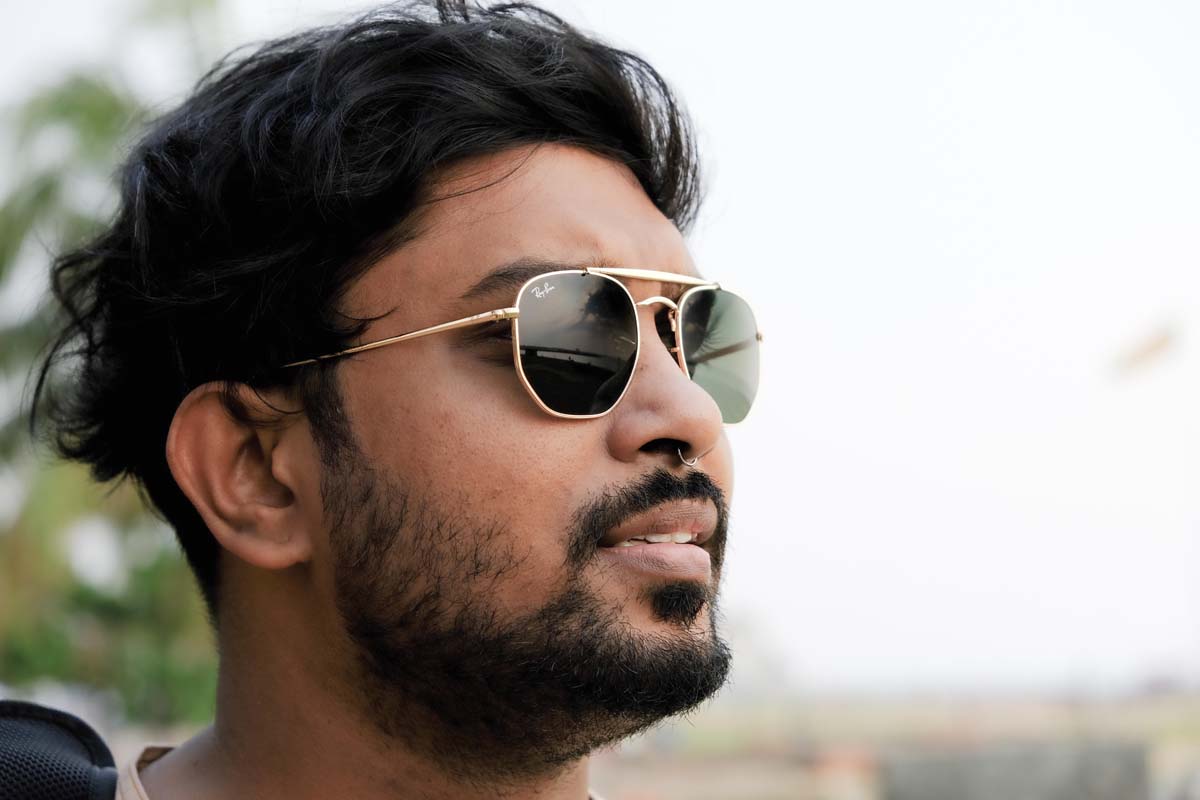
Based in Colombo, Uditha Rangana is a talented self-taught tattoo artist who negotiated his own way through the industry and now, as a result of his unrelenting drive and perseverance, is the owner of the renowned Soul Ink Studio in Colombo.
Here he chats with Hi!! about his experience as a tattoo artist and shares everything he knows about tattoos.
I’ve always had a passion for tattoos even when I was at school. I would draw a great deal and attempt to replicate famous musicians' tattoos onto myself, such as Fred Durst, the frontman of rap/rock band Limp Bizkit, and Eminem, etc. Whatever I thought would look good, I'd draw that onto my skin, to the point that some people thought that they were actual tattoos. Then my schoolfriends began to notice them and would have me draw on them during class as well.
But the real step into the industry happened when I was in Bangalore, India. My girlfriend at that time suggested that I start designing real tattoos since I was good at art, so I bought a very basic tattoo starter kit (which I strongly advise everyone NOT to do) and the rest is history.
I eventually got to work in a tattoo studio over there and learned the basics. Back then, my interests were all over the place, and I happened to enrol myself into a meditation programme, which gave me clarity on what I really wanted to do. Although I'd barely had any proper training beforehand, my interest in the art led me to carry out my research and learn on my own. From then on, I kept at it until I got to a point where I was able to start up Soul Ink Studio.
Yes, creating a permanent tattoo is always challenging. Especially since we do custom tattoos, which is a niche within an already niche industry. Unless we have an image to work with, we have to produce the ideas that are in our clients' minds from scratch in such a way that the design can be tattooed. Not all art can be tattooed due to limitations of the skin, and then sometimes the clients aren’t too keen with the first design, so we have to draw the same concept a few more times until it’s just right. So that is definitely one of the biggest challenges.
My parents weren’t very supportive at first, but as time went by they saw what I was doing and understood. My friends have always been supportive from the start! Some of them still come to be tattooed by me to this day.
Well, there’s a huge difference, especially when it comes to the technical aspects of the industry, but also the community within. Sri Lanka still has a long way to go, but it’ll get there with time, I'm sure.
Since I started 3 years ago, I’ve seen a lot of improvements and growth in the industry here. The people are starting to respect original art a lot more than before. You see more tattoo artists trying to legitimise their businesses and raise awareness so that people see it as a commercially professional career.
Do your research. Look for the tattoo artists in your area, check out their portfolios, visit the studios. Make sure you educate yourself about the hygiene and cross-contamination procedures that are carried out around the world, so you can be the judge of where you want to get your tattoos done.
Our studio is pretty homely and private. We’re also quite transparent with our clients on the entire procedure. They get to see how we set everything up and the expiry dates of our disposable equipment etc. We often like to chat with our clients, putting them at ease while the tattooing is being done. They watch the process most of the time and talking about it really helps.
Actually, yeah. We’re seeing a lot more people from all walks of life coming in to get tattooed than before. The stigma is definitely less of an issue than before. Currently, the major trends around the world happens to be fine line tattoos, micro-realism and neo-traditional tattoos, for which our studio, coincidentally, has two artists: Kyle who specialises in dark neo-traditional, and myself with fine line and micro-realism.
We get a pretty good range from 18-50 years of age. Sometimes a bit older too.
I do have a few, I’ve got a tattoo of Buddha on my back which is quite personal to me. Then I have one on my inner bicep that I got done by a friend of mine, Roanna Webster. It’s designed by me and has my uncle’s name in Hindi written across a scroll, and a hibiscus flower as a memory of our first home together. I also have a tattoo on my forearm, but that’s not important.
I do fine line, micro-realism, very illustrative pieces while using a whip shading technique for my black and grey pieces.
Since we don’t have any statutory regulation of tattooing in Sri Lanka, there isn’t an established standard for hygiene that studios here are required to follow. So, I would like to refer to my earlier answer where I suggested people do their research online about international standards.
Regarding tattoos fading, there are 3 aspects to it; the artist, the placement of the image, and the aftercare. First, you should go to a professional and reputable tattoo artist. Second, discuss where the actual tattoo will be placed because sometimes tattoos fade a lot faster on certain areas of the body (i.e. fingers, palms, feet, etc.) than others. Lastly, the healing and aftercare stage of your tattoo is very important and your tattoo artist will advise on how to keep the tattoo clean and bacteria-free while it's healing. He/She will also know what the best lotions or ointments are to use.
Yes, it’s better to work with another artist or more, you get to share information, grow and get a lot done. Especially with my apprentice Kyle, we are two different people and we educate each other on many things to help us become better artists.
Correction, I’m the only artist in South Asia that specialises in ‘Micro Tattoos’, working at Soul Ink Studio. ‘Micro Realism’ basically refers to really small, realistic-looking tattoos. They’re tattoos with a lot of tiny details in a small area. You need to have very fair skin to have one though.
I really enjoy doing a lot of pop-culture pieces, with a very traditional Sri Lankan twist, like Liyaval designs (flowers and twisting vines), traditional masks, and so forth.
Yes, it does lead to a huge strain on my back and wrist, which I am not taking medication for. But I love what I do.
I've planned and picked out a few tattoo conventions around the world that I do intend on visiting in 2020, all of which are for the purpose of learning and spreading our country’s name around.
Yes, there's a lot less stigma than there used to be, yet it's still there. People are much more open-minded now. We get a lot of people who say, “Oh my mum is gonna yell at me or kick me out.” Which hasn’t happened, and honestly, whenever they see the tattoos, they actually like them. We plan to carry on breaking that stigma by educating the public about tattoos, art and the industry.
I intend to become a travelling tattoo artist, where I can frequently visit other studios around the world, tattoo there for a short period of time, then come back here to Sri Lanka now and then. Soul Ink Studio will continue with more specialised artists while I'm away, but I'd still like to be based here.
Yes, I do plan on getting more tattoos from other artists, I just haven’t decided on what or when. But off the top of my head, I'd like to have a small tattoo of a Vespa scooter somewhere on my arm.
A tip to anyone planning on getting a tattoo. When looking for a design, try being open to customising it, so it’s unique and genuine to you. After looking through portfolios, and deciding on who to go to based on the art style, give the artist creative freedom so you won’t be plagiarizing another artist’s design.
First thing is, don’t do it for the money, be passionate about it. Draw draw draw, always draw and try to create your own designs and concepts. Lastly, take proper measures to maintain hygiene to prevent any sort of cross-contamination during the process.
Thank you Uditha for spending time to talk with us.
You can see more of Uditha's work or contact him at:
Facebook: www.facebook.com/soulinkstudio
Instagram: @soulinkstudio / @udith_ink

